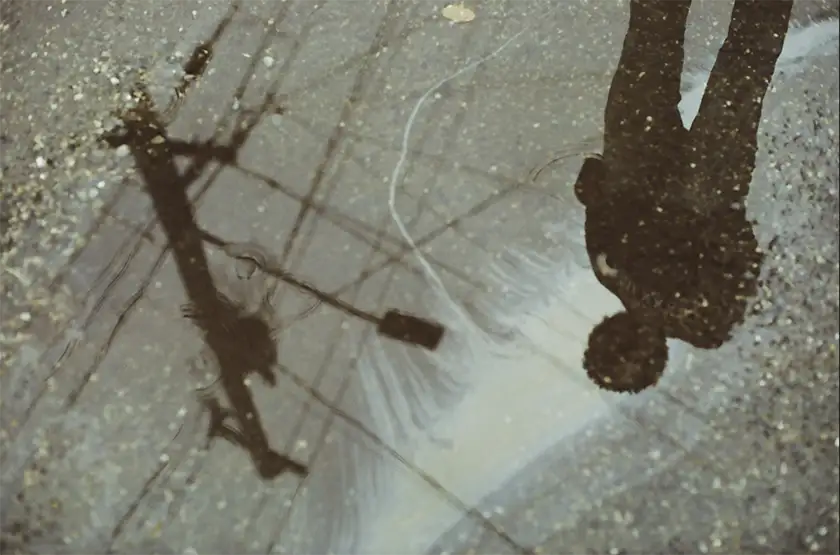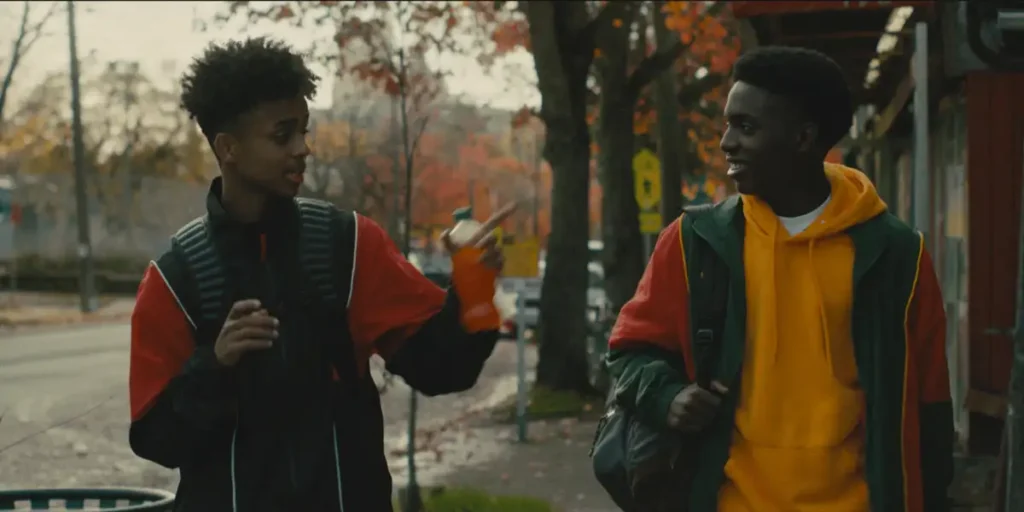Know Your Place, the debut feature of Zia Mohajerjasbi, is a beautiful and poetic exploration of community, following a teenage Eritrean boy on a journey through Seattle.
Writer and Director: Zia Mohajerjasbi
Genre: Drama
Run Time: 117′
U.S. Release: December 3, 2024
U.K. Release: TBA
Where to Watch: On digital and on demand
Home can extend far beyond the confines of four walls and a floor. Know Your Place, the debut feature of filmmaker Zia Mohajerjasbi, follows Eritrean American teen Robel Haile (Joseph Smith) on a journey through Seattle, when he is waylaid from an errand to deliver to relatives a suitcase full of money and medicine by a lost cell phone. The rather mawkish cliché of “the city is a character” is an honest accounting of Know Your Place.
As the movie travels from one side of the city to another, a picture of Seattle emerges that is painted with dimensionality, texture, and a documentarian’s eye for the messy parts of the human experience. The characters are finely, lovingly sketched, but they are revealed in the way that they interact with their environment. Know Your Place is about the complicated, beautiful ways in which home, community and personal identity are intertwined.
The plot of Know Your Place is as simple as a fable, with a tone rather like if Barry Jenkins directed Bicycle Thieves. Robel is a 15-year old boy caught between the cultures of the United States and East Africa, grieving the recent death of his father, and attempting to keep his head above water around a sharp-tongued, stressed-out mother (Selamawit Gebresus), aloof elder sister (Esther Kibreab), and a Grandfather suffering from a neurodegenerative disease (Haileselassie Kidane). One night they receive an urgent call from a relative in Eritrea asking for help with medical bills. Even with the family’s financial problems the mother quickly agrees to help.
Robel volunteers to transport a large suitcase full of money and medicine across town to a family friend who is traveling back to Eritrea and will deliver the necessities. Alongside his best friend, Fahmi (Natnael Mebrahtu), Robel journeys across Seattle, traveling by bus, taxi, car, and foot. The simple task is interrupted when Robel forgets his mother’s cell phone on the bus, and the two teens must make their way to the opposite side of Seattle in order to retrieve it from an opportunistic grifter.
While Know Your Place takes place entirely within the confines of Seattle, its structure has many of the same qualities as a “road story,” in which travelers humorous misadventures and encounters with quirky misfits as they make their way to a faraway destination. Mohajerjasbi demonstrates a sensitivity and an understanding of human behavior in the presentation of these side characters: other members of the Eritrean community of Seattle.

Most of the performers are first-time actors, a fact in line with the movie’s neo-realist tendencies, but they are never less than compelling while delivering long monologues that serve to teach both Robel and the audience about the community. In the way that the camera captures the Autumn leaves of the Northwestern city and lingers on the actors faces far longer than a filmmaker would traditionally allow one can feel Mohajerjasbi’s love and fascination with his subjects. Many moments in Know Your Place do not move the narrative forward, but they add beauty and texture to the movie and form a more complete picture of Seattle.
The movie’s dialogue is sharp and naturalistic, but like the aforementioned Barry Jenkins, Mohajerjasbi understands that oftentimes what is said on the human face is more powerful than what is vocalized. Some of the most memorable moments, the shots that stick in my mind long after Know Your Place concluded, are only Smith’s face as he looks off into the Seattle skyline. The cinematography, from Nicholas Wiesnet, in Know Your Place, is autumnal and poetic.
One of the most important facets of cinema is the way that it allows the viewer to step into lives and experiences different from their own. The Eritrean diaspora community of Seattle is a group with a particular story and here in Know Your Place it is told with sensitivity and feeling. There’s a specificity to the movie, moments that belong only to Seattle and its African community, that is breathtaking and allows for others to step outside of themselves and exercise their capacity for empathy. Still, the movie understands humanity well enough to know that much is universal, and many of the world’s problems come from not accepting that fact. As Fahmi’s cab-driving uncle tells Robel, “You go back to where you live. I go back to where I live. That’s not diversity. That’s colors. Names. A name by itself doesn’t mean much. It’s the connection between them.”
Know Your Place: Movie Plot & Recap
Synopsis:
Robel, a 15-year-old Eritrean-American lives in Seattle with a mother, sister and Grandfather. He is tasked with transporting a suitcase of medicine and money across the city for it to be sent to relatives in Africa. Traveling with his best friend Fahmi, the journey is interrupted when Robel leaves his mother’s cell phone on the bus and they must retrieve it from an opportunistic grifter.
Pros:
- Brings to the screen a group of people whose stories have been underseen
- Humanistic and poetic
- Beautiful cinematography
Cons:
- The use of non-professional actors may not be to everyone’s taste
Know Your Place is now available to watch on digital and on demand.
Following a theatrical rollout over the summer, Know Your Place will be released on digital and on demand on December 3, 2024.

